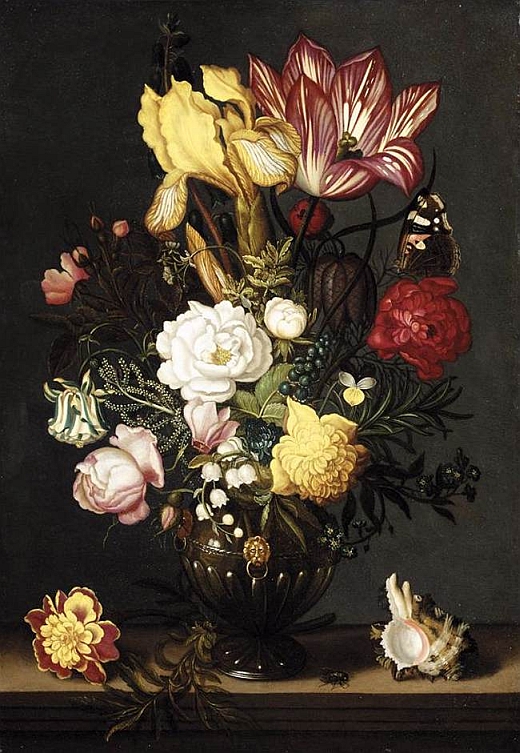
Fair Daffodils, we weep to see
You haste away so soon;
As yet the early-rising sun
Has not attain’d his noon.
Stay, stay,
Until the hasting day
Has run
But to the even-song;
And, having pray’d together, we
Will go with you along.
We have short time to stay, as you,
We have as short a spring;
As quick a growth to meet decay,
As you, or anything.
We die
As your hours do, and dry
Away,
Like to the summer’s rain;
Or as the pearls of morning’s dew,
Ne’er to be found again.
—Robert Herrick, To Daffodils (1665) in The Works of Robert Herrick, vol. 1, p. 156 (A. Pollard ed. 1891).
Yesterday, walking home I passed by the first stand of blooming daffodils of the season, and it brought my mind back to this poem by Robert Herrick, last read more than thirty years ago in college days. Herrick, the man who wrote that ridiculous “gather ye rosebuds while ye may” poem, was a divine with an effusive and suspiciously secular personality, to judge from his poems, in any event. He was not quite a cavalier poet, of course, but he was also something of an adventurer (as chaplain to the duke of Buckingham, he participated in the military disaster at the île de Rhé, when Buckingham’s efforts to relieve the siege of the Calvinist city of La Rochelle collapsed). Daffodils can seem a bit trite as a metaphor, I suppose, but of course to the seventeenth century aesthetic, those daffodils were a perfect image. The beauty of nature, its spontaneity, and also the transitory nature of life, especially of human life. There is a carpe diem sense behind this work, and Herrick carries it out beautifully. Scan this poem and look at how it brims with monosyllabic words in alliterative sequence (die, do, dry, for instance). It’s an impressive work of studied, very carefully studied, simplicity, where the word choice and form closely match images and thoughts. And across the sea in Holland, Ambrosius Bosschaert (the Younger) is painting much the same concepts, with oil on canvas, picking a bouquet that speaks more of the end of May (for my garden in any event), roses, iris, convalaria, fritullaria. But for a Hollander of that age, the message was the same: enjoy the splendor that nature offers, but don’t forget the fleeting nature of this beauty, the fact that it will pass, decay, fade, very quickly. The world is warming to the green fuse, and the thought of transitition couldn’t be more timely.



